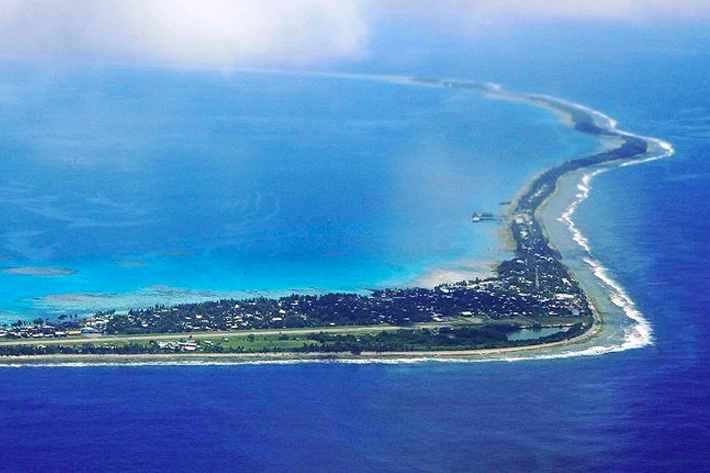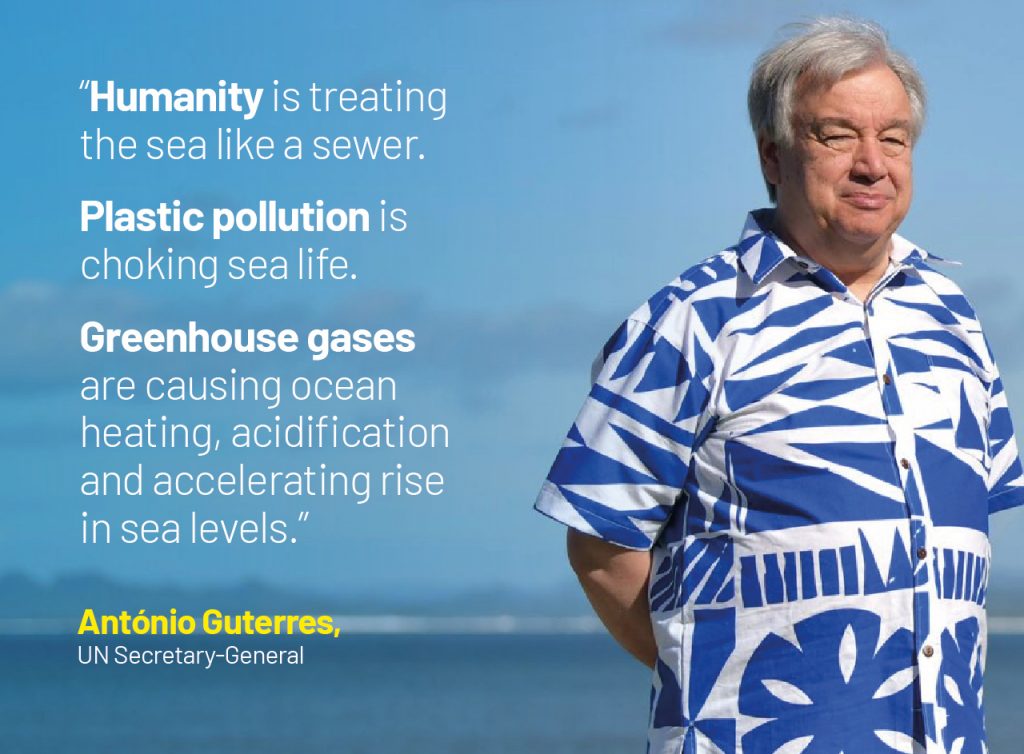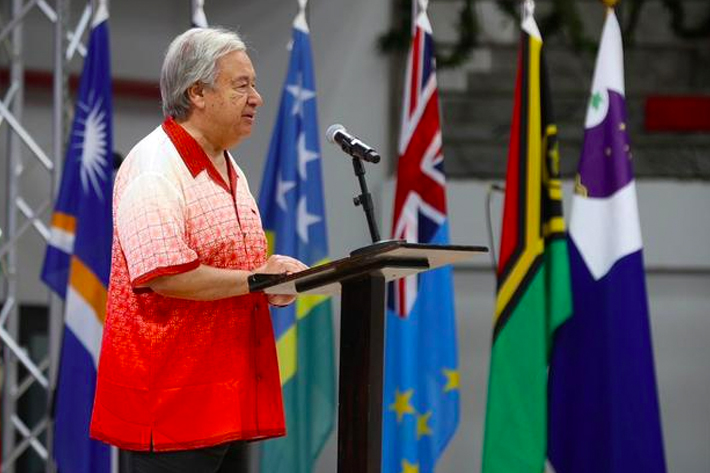UN chief Antonio Guterres has issued an SOS on rising sea levels, saying people on islands in the Pacific are in peril because of a “triple whammy” of impacts from global warming.
Guterres, who spoke at the Pacific Islands Forum in Tonga on Tuesday, called on wealthy nations around the world, such as G20 states, to stop signing new oil and gas licences, saying use of fossil fuels is creating “a worldwide catastrophe” that poses grave threats to island nations.
The UN secretary-general launched a report by the World Meteorological Organization, which details three impacts of sea level rise. “Greenhouse gases are causing ocean heating, acidification, and a dramatic and accelerating rise in sea levels,” he said.
ALSO SEE: Most Effective Climate Policies Identified in New Study
The WMO’s State of the Climate in the South-West Pacific 2023 report details how sea level rise in the region is well above global norms – sea surface temperatures have risen three times faster than the global average since 1980, it says. During that time marine heatwaves have doubled in frequency since 1980 and become more intense and last longer.
“A worldwide catastrophe is putting this Pacific paradise in peril,” Guterres said.“ Global average sea levels are rising at an unprecedented rate. The ocean is overflowing.
“The reason is clear: greenhouse gases – overwhelmingly generated by burning fossil fuels – are cooking our planet. And the sea is taking the heat – literally.”

Pacific islands account for just 0.02% of global emissions, but are some of the worst exposed in terms of impacts, because their average elevation is just one to two metres above sea level. About 90% of their people live within 5 kilometres of the coast and half the infrastructure is within 500 metres of the sea, Guterres said.
“The world must look to the Pacific and listen to science… if we save the Pacific, we also save ourselves.”
‘Surging seas are coming for us all’
Guterres said Pacific nations urgently need “substantial finance”, plus skills and technology to bolster their adaptation and resilience.
“That is why we have been calling for the reform of the international financial architecture, for a massive increase in the lending capacity of Multilateral Development Banks, for debt relief programmes that work, including for middle income countries that are in distress.”
But he said the problem of rising seas and extreme heat would affect countries all over the world.
“Surging seas are coming for us all .. Across the world, around a billion people live in coastal areas threatened by our swelling ocean. Yet, even though some sea level rise is inevitable, its scale, pace, and impact are not. That depends on our decisions.”
The WMO said melting glaciers and ice sheets from Greenland and the Antarctic were accelerating sea-level rise.
“Without drastic cuts to emissions, the Pacific islands can expect at least 15 centimetres of additional sea-level rise by mid-century, and more than 30 days per year of coastal flooding in some places,” Guterres told reporters at the Pacific forum.
A rise of 2 degrees Celsius above pre-industrial levels “could potentially lead to the loss of almost all the Greenland ice sheet, and much of the West Antarctica ice sheet,” he said. “That would mean condemning future generations to unstoppable sea-level rise of up to 20 metres – over a period of millennia [1,000 years].
“At 3C of warming – our current trajectory – the rise in sea level would happen much more quickly – over centuries.”

‘Running out of time to turn the tide’
WMO secretary-general Celeste Saulo described climate change as the defining challenge that humanity faces, but said “we are fast running out of time to turn the tide.”
“The ocean has taken up more than 90% of the excess heat trapped by greenhouse gases and is undergoing changes which will be irreversible for centuries to come,” she said.
“Already we are seeing more coastal flooding, shoreline retreat, saltwater contamination of freshwater supplies and displacement of communities.”
The WMO report said “emerging research on climate ‘tipping points’ and ice-sheet dynamics is raising alarm among scientists that future sea-level rise could be much larger and occur sooner than previously thought.”
And while islands face “disproportionate” impacts, Arctic communities and coastal megacities could also face grave consequences.
- Jim Pollard
NOTE: The headline on this report was changed on August 28, 2024.
ALSO SEE:
Warning on Tibetan Plateau as World Sees Rise in Heat Records
China Slows Coal Power Plant Building Push – Yahoo
Extreme Weather Cost China More Than $10 Billion In July Alone
World Bank Looking to Bolster Financial Links for Pacific Islands
Scientists Fear Record Ocean Heat Is Changing Earth’s Systems
Australia in Security, Resettlement Pact with Low-Lying Tuvalu
Big Oil All Talk And No Action on Climate Change, Report Says
Renewables Now Source of 30% of World’s Power – Guardian
Asia is Warming Faster, Hit Hardest by Climate Disasters: WMO
China Wind, Solar Capacity Set to Outstrip Coal For First Time
























